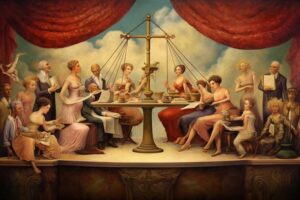
Do you know 25th December, the Christmas Day, may not be the actual date of birth of Jesus Christ?: 6 New Facts
Unraveling the True Origins of Christmas Day: A Date Disguised in History
The day of birth of Jesus; Christmas is celebrated on 25th December of each year. 25th December—Christmas Day—has been a federal holiday in the United States since 1870. It is celebrated as Christmas Day worldwide and it’s both a sacred religious holiday and a worldwide cultural phenomenon.
You will be amazed to know that the population of almost 2.38 billion people worldwide celebrate Christmas day with traditions and practices that are both religious and secular in nature.

You will be amazed to know that it has not started likewise. The famous pagan Saturnalia festival was observed on 25th December before 432 AD but Church leaders decided to celebrate Jesus’ birth on the same day for the wider acceptance amongst the Christians population. The few excerpts are below:
- In the early era of Christianity, Easter took precedence as the primary holiday, while the celebration of Jesus’ birth wasn’t initially observed.
- It wasn’t until the fourth century that church leaders decided to establish Jesus’ birth as an official holiday, despite the absence of a specific date for this event mentioned in the Bible.
- Although there’s speculation suggesting a potential spring birth for Jesus based on details like shepherds tending their flocks, Pope Julius I settled on 25th December for the holiday, a date believed to have been chosen to incorporate traditions from the pagan Saturnalia festival.
- Initially termed the Feast of the Nativity, this celebration gradually expanded, reaching Egypt by 432 AD and eventually spreading to England by the close of the sixth century.
- By aligning Christmas with the customary winter solstice festivities, the church aimed to ensure wider acceptance, although relinquishing some control over its celebration. Over time, Christianity largely replaced pagan beliefs as the Middle Ages unfolded.
- Christmas celebrations included church attendance followed by lively, carnival-like festivities akin to today’s Mardi Gras. Traditions such as appointing a “lord of misrule” annually and impoverished individuals visiting wealthy households for food and drink became part of the festivities. This period became a time for the affluent to entertain the less fortunate as a form of societal repayment.
Why Christmas is celebrated with Christians popular customs include exchanging gifts, decorating Christmas trees, attending church, sharing meals with family and friends and, of course, waiting for Santa Claus to arrive?
- Birth of Jesus: Christmas honours the birth of Jesus Christ, whom Christians believe is the Son of God and the savoir of humanity. The Gospels of Matthew and Luke in the Christian Bible describe the events surrounding his birth in Bethlehem.
- Fulfilment of Prophecy: For Christians, Jesus’ birth fulfils Old Testament prophecies of a Messiah who would come to redeem humanity and bring salvation
- Gift-Giving: The tradition of exchanging gifts is symbolic of the gifts presented to Jesus by the three wise men in the biblical story. Over time, this tradition expanded to include sharing gifts among family and friends as a gesture of love and generosity.
- Decorations: Decorating Christmas trees, hanging wreaths, and displaying lights have roots in pagan winter solstice celebrations. The evergreen tree, a symbol of life and rebirth, was later incorporated into Christian traditions as a symbol of everlasting life through Jesus.
- Santa Claus: The figure of Santa Claus, based on Saint Nicholas, a Christian saint known for his generosity, evolved from various cultural influences. The modern depiction of Santa Claus as a gift-giver to children on Christmas Eve has become a beloved part of Christmas in many cultures.


Final Thought:
Significance of 25th December, masks a diverse history of cultural adaptation and assimilation. Understanding this journey enriches our appreciation of modern celebrations.
In contemplating the intricate tapestry woven by history and culture, let us celebrate Christmas not just for its date but for the timeless spirit of unity and generosity it embodies.
The more you may know about the Christmas day via https://www.britannica.com/topic/Christmas
You may also know about the 26/11 attack by click on https://umpteennews.com/26-11-attack-november-2008-mumbai/

3 Responses